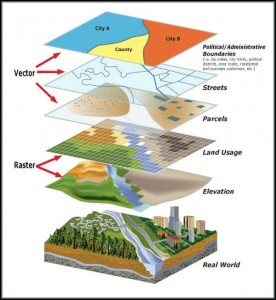Navigating the Digital Landscape: Understanding Outage Maps and Their Significance
Related Articles: Navigating the Digital Landscape: Understanding Outage Maps and Their Significance
Introduction
With enthusiasm, let’s navigate through the intriguing topic related to Navigating the Digital Landscape: Understanding Outage Maps and Their Significance. Let’s weave interesting information and offer fresh perspectives to the readers.
Table of Content
- 1 Related Articles: Navigating the Digital Landscape: Understanding Outage Maps and Their Significance
- 2 Introduction
- 3 Navigating the Digital Landscape: Understanding Outage Maps and Their Significance
- 3.1 Understanding Outage Maps: A Visual Guide to Service Disruptions
- 3.2 Benefits of Outage Maps: Transparency, Communication, and Efficiency
- 3.3 FAQs Regarding Outage Maps
- 3.4 Tips for Utilizing Outage Maps Effectively
- 3.5 Conclusion: Outage Maps – A Vital Tool in the Digital Age
- 4 Closure
Navigating the Digital Landscape: Understanding Outage Maps and Their Significance

In the modern world, digital connectivity is an indispensable facet of life, impacting communication, commerce, entertainment, and even essential services. When this connectivity falters, the consequences can be significant, ranging from minor inconveniences to critical disruptions. Recognizing the importance of staying informed about service outages, many organizations, including internet service providers (ISPs), have implemented outage maps as a valuable tool for communication and transparency. These maps provide a visual representation of service disruptions, allowing users to quickly assess the extent and location of outages, understand potential causes, and stay updated on restoration efforts.
Understanding Outage Maps: A Visual Guide to Service Disruptions
An outage map is essentially a graphical representation of an internet service provider’s network, overlaid with real-time data indicating areas experiencing service disruptions. These maps are typically interactive, allowing users to zoom in on specific regions, identify affected neighborhoods, and view detailed information about the outage. The data displayed on these maps can include:
- Outage location: Precise geographic coordinates highlighting affected areas.
- Outage type: Specific service affected, such as internet, phone, or television.
- Outage status: Current state of the outage, such as "active," "investigating," or "resolved."
- Estimated restoration time: Projected timeframe for restoring service, although this can be subject to change.
- Cause of outage: Potential reasons for the disruption, such as equipment failure, planned maintenance, or weather-related issues.
By providing this information, outage maps empower users to:
- Stay informed: Gain real-time insights into service disruptions affecting their area.
- Plan accordingly: Adjust their activities or find alternative solutions if necessary.
- Understand the situation: Gain context about the cause and scope of the outage.
- Track progress: Monitor restoration efforts and stay updated on the timeline.
Benefits of Outage Maps: Transparency, Communication, and Efficiency
The implementation of outage maps offers several benefits for both service providers and their users:
- Enhanced Transparency: By openly sharing information about service disruptions, ISPs demonstrate transparency and commitment to their customers. This transparency fosters trust and builds confidence in the provider’s ability to manage and resolve outages effectively.
- Improved Communication: Outage maps provide a central platform for communication, allowing ISPs to quickly disseminate information about outages and updates on their resolution. This reduces the need for individual inquiries and ensures consistent communication across affected areas.
- Increased Efficiency: Outage maps help ISPs prioritize their efforts by providing a clear understanding of the affected regions and the nature of the disruption. This allows them to allocate resources effectively and expedite the restoration process.
- Empowered Users: Users equipped with outage map information can proactively address disruptions, find alternative solutions, and minimize the impact on their daily activities.
FAQs Regarding Outage Maps
1. How do I access an outage map?
Most ISPs provide access to their outage maps through their website or mobile app. The specific location and accessibility will vary depending on the provider.
2. How accurate are outage maps?
Outage maps are generally accurate, but it’s important to note that data is based on real-time information and may not always be completely up-to-date.
3. What should I do if my area is not listed on the outage map?
If your area is not listed, it may be experiencing a localized outage that is not yet reflected on the map. Contact your ISP directly for further information.
4. How can I report an outage?
Most ISPs provide dedicated channels for reporting outages, such as a website form, phone number, or mobile app.
5. How often is the information on the outage map updated?
The frequency of updates varies depending on the ISP. Some providers update their maps in real-time, while others update them periodically throughout the day.
6. What if the estimated restoration time is inaccurate?
While ISPs strive for accurate estimates, unforeseen circumstances can impact restoration efforts. It’s always best to check the outage map for updates or contact your ISP for the latest information.
Tips for Utilizing Outage Maps Effectively
- Bookmark the outage map: Make it easily accessible for quick reference.
- Check the map frequently: Stay updated on the latest information regarding outages.
- Use the map’s features: Explore the interactive elements, such as zooming, filtering, and searching.
- Report outages promptly: Provide accurate information to help ISPs address the issue efficiently.
- Stay informed: Follow your ISP’s social media channels or subscribe to email alerts for updates.
Conclusion: Outage Maps – A Vital Tool in the Digital Age
Outage maps are an essential tool for navigating the digital landscape, providing transparency, communication, and efficiency during service disruptions. By utilizing these maps, users can stay informed, plan accordingly, and minimize the impact of outages on their daily lives. As technology continues to evolve and reliance on digital connectivity grows, outage maps will play an increasingly crucial role in ensuring a seamless and reliable online experience.








Closure
Thus, we hope this article has provided valuable insights into Navigating the Digital Landscape: Understanding Outage Maps and Their Significance. We hope you find this article informative and beneficial. See you in our next article!